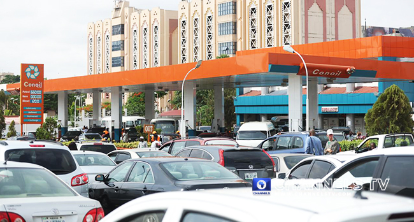Fuel Scarcity: FG Threatens To Withdraw Marketers licences Over Hoarding

The Federal Government of Nigeria has issued a stern warning to oil marketers against the hoarding of Premium Motor Spirit (PMS), commonly known as petrol, amid ongoing fuel shortages across several states, particularly in the North. The shortages have led to widespread disruption, with many petrol stations in states like Abuja, Niger, Nasarawa, and Kaduna either shutting down due to supply issues or engaging in practices that exacerbate the crisis.
In response to the growing crisis, the Nigerian Midstream and Downstream Petroleum Regulatory Authority (NMDPRA) has threatened to revoke the licenses of any oil marketers found guilty of hoarding petrol or selling it illegally to black marketers in jerrycans. The warning was delivered by Ogbugo Ukoha, Executive Director of Distribution Systems, Storage, and Retailing Infrastructure at the NMDPRA, during an inspection tour in Abuja. Ukoha emphasized the seriousness of the situation, advising station managers to seek security reinforcements if necessary to prevent the illegal sale of petrol.
The NMDPRA has also taken to social media, particularly its X handle, to reinforce its stance against the illegal sale of petroleum products, declaring a “war” on such activities. The agency warned that filling stations involved in these illegal practices would face severe consequences, including the suspension of their retail licenses.
The scarcity of petrol has been a persistent issue, with various reasons cited for the disruption in supply. On July 27, the Nigerian National Petroleum Company Limited (NNPCL) spokesperson, Olufemi Soneye, attributed the fuel scarcity in Abuja and Lagos to a hitch in the discharge operations of a couple of vessels. The NNPCL also pointed to adverse weather conditions and flooding of key truck routes as factors that have hampered the movement of PMS from coastal areas to the Federal Capital Territory, Abuja. Despite these explanations and assurances of ongoing efforts to resolve the crisis, the scarcity persists in many northern states, leaving residents and businesses struggling to cope with the situation.
The Federal Government’s recent actions underscore the importance of adherence to regulations governing the distribution and sale of petroleum products. Any deviation from these regulations not only exacerbates the current scarcity but also poses significant safety risks to the public and the infrastructure involved in the fuel supply chain.



